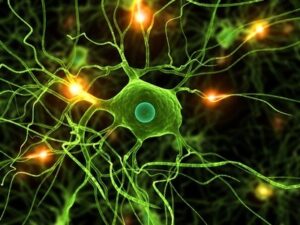 What if you could change your state of mind, just by changing your breathing?
What if you could change your state of mind, just by changing your breathing?
A study on deep breathing [1] found that it made the participants more relaxed and that it affected the brain waves of the participants. This has implication beyond just lowered stress and increased well-being
The study used electroencephalogram (EEG) to measure the effect of deep breathing on the 16 participant’s brain waves.
The breathing lasted four to six minutes with six breaths per minute. The deep breaths consisted of four seconds of inhaling with the diaphragm, two seconds holding the breath and four seconds of exhaling.
The deep breathing increased the amount of alpha, theta and delta waves.
What does this mean, you might ask.
 Normally we’re in the beta state. It is when your brain waves have a frequency of 16-31 Hz (per second). In the beta state we’re attentive, thinking actively and alert. It ranges from actively calm, to stressed out or mildly obsessive.
Normally we’re in the beta state. It is when your brain waves have a frequency of 16-31 Hz (per second). In the beta state we’re attentive, thinking actively and alert. It ranges from actively calm, to stressed out or mildly obsessive.
Deep breathing is an effective way of lowering your brain wave frequency to the range 8-15 Hz. In the alpha state you’re relaxed and reflective. Stress levels are substantially decreased as compared to the beta state. The alpha state has been widely recognized as an optimal state for learning.
Deep breathing also increases the amount of theta waves, which are in the range of 4-7 Hz. In the theta state you’re even more relaxed. In this state you’re extremely receptive and open. A place where we often go into the theta state is in the shower. The soothing effects of warm water running over your body together with the white noise can be incredibly relaxing. The delta state is another brain state that often arises out of the theta state, when we have some deep insight or ideas. This is why you often have aha moments or great business ideas while you’re showering.
 The last brain state that can arise due to deep breathing is the delta state, which has a frequency less than 4 Hz. This is such an extremely relaxed state that it is mostly associated with deep sleep. Babies are mostly in this state the first two years of their lives, which is why they don’t remember much from these two years.
The last brain state that can arise due to deep breathing is the delta state, which has a frequency less than 4 Hz. This is such an extremely relaxed state that it is mostly associated with deep sleep. Babies are mostly in this state the first two years of their lives, which is why they don’t remember much from these two years.
Just by changing your breathing pattern, you can become more relaxed, you can become more concentrated, you can enter a more creative state and you can significantly improve your chances of having profound “aha moments”.
Vegard Gjerde is one of the two founders of Global Harmony Crew.
Global Harmony Crew helps people uncover their true selves and live a life full of meaning and happiness. Join the crew by subscribing and you will learn about everything from the deep metaphysical questions, to basic steps you can take in your day-to-day life to manifest happiness and fulfillment. Follow Global Harmony Crew on Facebook as well!
Reference:
[1] http://www.mfu.ac.th/school/anti-aging/File_PDF/research_inter/P2557_21.pdf


I personally agree with this, I suffer from anxiety and depression so I’m constantly watching my breathing patterns, I find because I constantly breathe deeply and am able to relax my mind to an almost daydream state I quite often have “aha” moments. (I took this creativity and made a business from it)